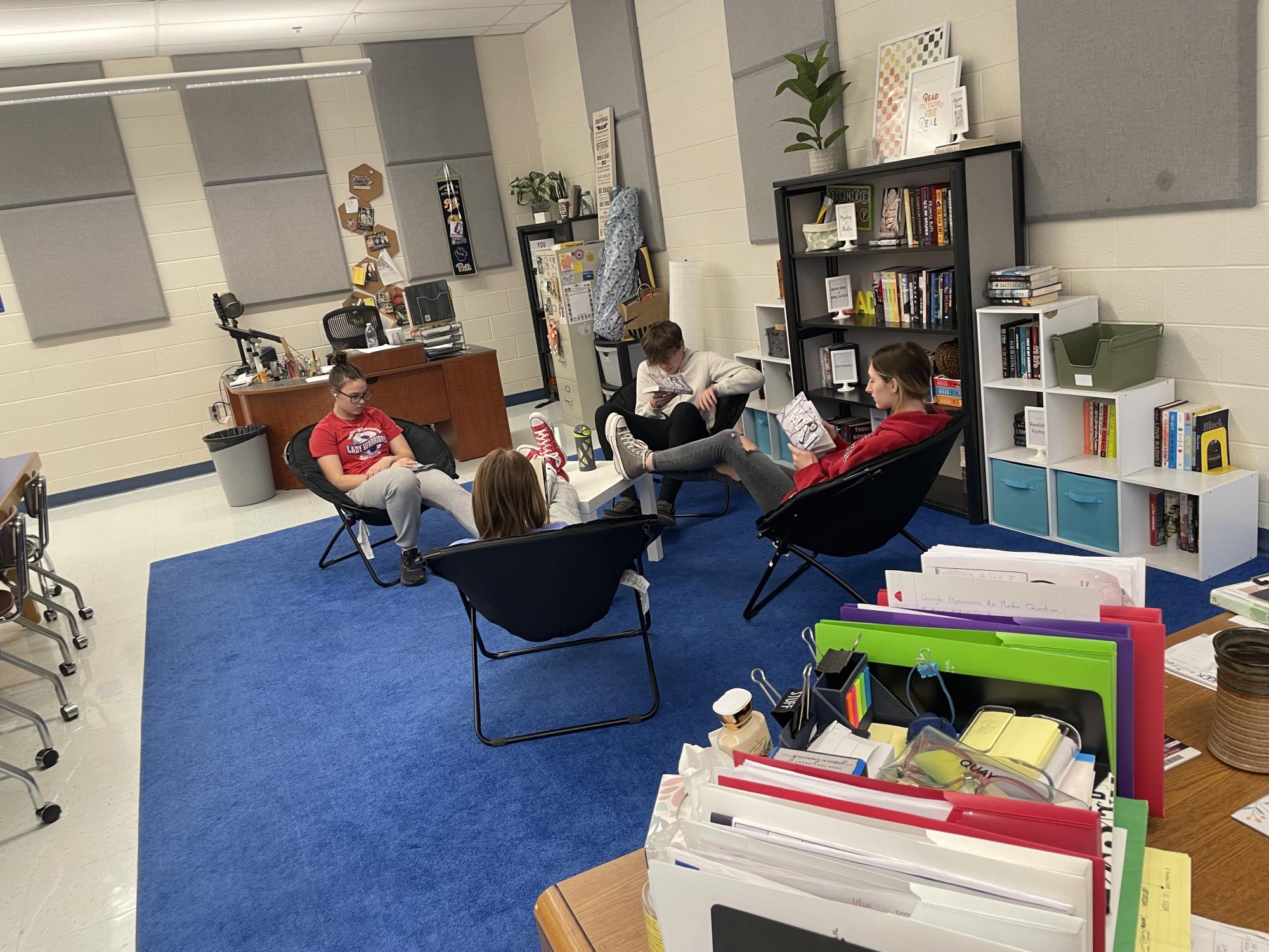Independent reading for high school students is beneficial in many ways. For example, it increases comprehension, vocabulary, grammar, and spelling skills. During the school year, teachers are giving students an opportunity every day to read a book they have chosen. Mrs. Dickson, an English teacher at West Branch Area High School, emphasizes the significance of this practice, stating, “As an English teacher, I am required to teach many things. However, I believe the most important thing to teach is reading. It’s the foundation for literacy and effective communication. It helps students understand themselves, have empathy for others who are different from them, grow confidence, relax their minds, and reduce anxiety.”
There have been many good results when students get to read a book of their choice. Research shows they get better grades and do better on assessments when they read independently. According to research conducted by Australian Christian College, students who engage in independent reading not only achieve better grades but also demonstrate superior performance on assessments. The research states, “Students who read independently have greater reading comprehension, verbal fluency, and general knowledge than those who do not. They become better readers, score higher on achievement tests in all subject areas, and have greater content knowledge than their non-reading peers.”
Allowing students to choose their own books creates an increased interest in the reading material. The students will also be more willing to read the book because it is something they want to read. Allowing students to choose their own books not only sparks greater interest but can also result in improved academic performance. As Dr. Bill McBride, educator, author, and speaker, eloquently puts it, “I was lucky enough to grow up when … the most wonderful thing a teacher might say was, ‘Go to the library and pick out a book.’” This emphasis on student choice in reading aligns with the idea that such freedom to select their reading materials can positively impact a student’s love for literature and academic achievements.
When a student finishes a book, sharing the story with a peer becomes an opportunity to create connections and build a sense of community among students. This interaction can be valuable for developing relationships with classmates. It can also help the student feel safe in their classroom and not judged if they are not the only one who has to read and share. Western Governors University states, “Peer learning fosters teamwork, cooperation, patience, and better social skills. In a cooperative peer learning environment, each student’s strengths can serve to complement the group and enhance learning.”
With all of these potential benefits, why not make the most of getting to choose books that will draw you in, help you see the world in a different light, and teach you what it might be like to be someone else?
Resources:
Reading daily improves comprehension and student performance
Peer Learning: Overview, Benefits, and Models
The Power Of Reading Choice, Time, and Pleasure










